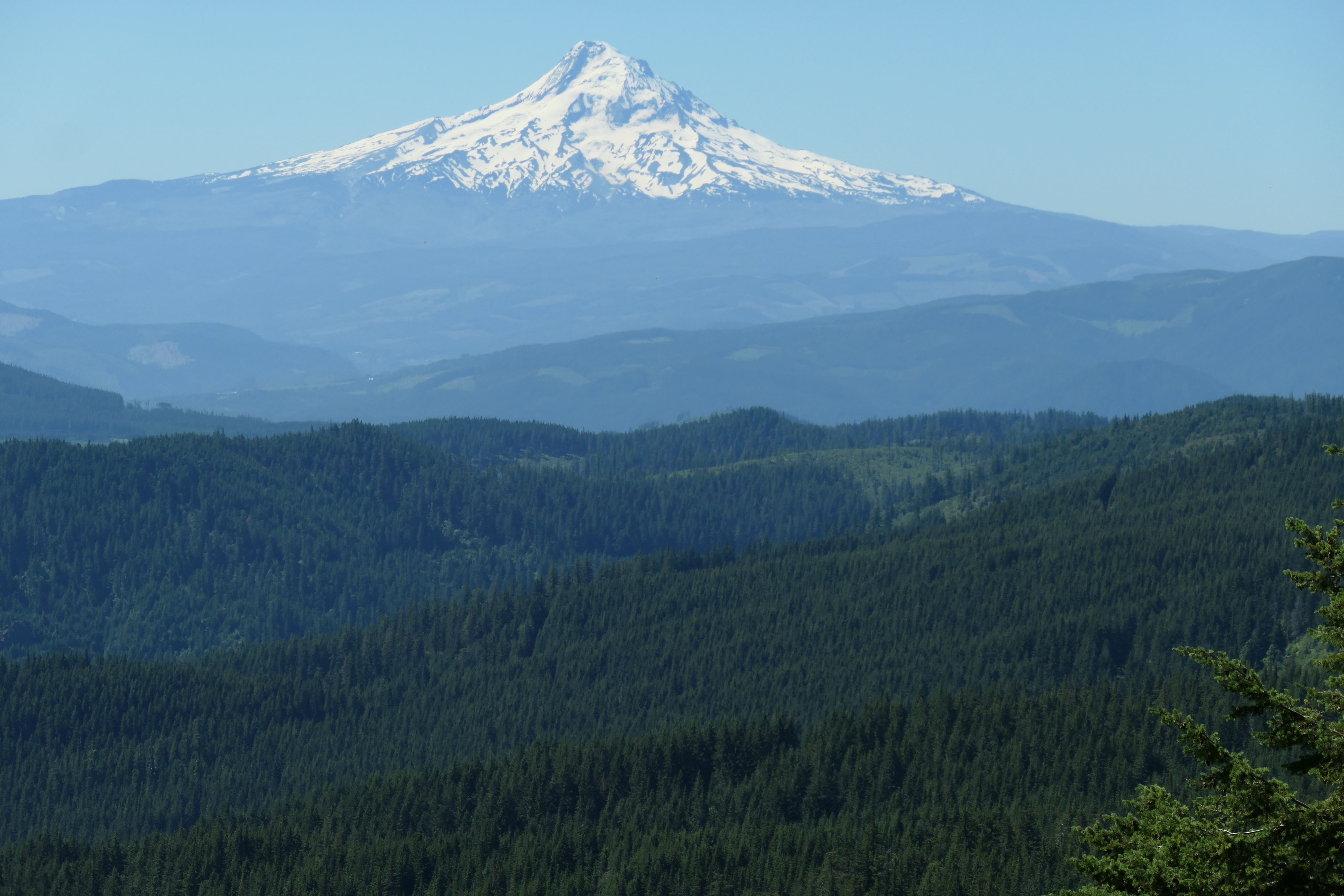With the oil boom in North Dakota and the extraction of Canadian tar sands, shipment of crude through the states of Washington and Oregon has increased by 250% since only a decade or so ago. Last year Oregon alone saw 19.000 of those tankers on mile-long oil trains pass through, and much of it ends up in Portland at a terminal owned by Zenith Energy. Here the crude is unloaded into massive storage tanks and later pumped onto ships bound for refineries and factories. (An informative article about the problems with this can be found here.)

The Columbia River Gorge is the key route for oil transport moving through the Pacific Northwest. You have as many as 18 oil trains a week – and no one is fully prepared for action against toxic inhalation hazards or worse, catastrophic accidents, particularly since the oil moving through WA and Oregon is unusually volatile. The railroad companies responsible for the trains have had accidents elsewhere, in North Dakota and Alabama, and of course we got our first warning with what happened in Mosier, OR in 2016, when a Union Pacific oil train derailed, catching fire and spilling a small amount of oil into the river during salmon migration.



I thought it was time to remind ourselves of all this when I heard that the house legislature passed a spill planning bill (House Bill 2209) on Monday. The bill had been delayed for years by corporate money in politics while other West Coast states have long taken action. It now allows the state to levy two fees to fund plans for spills.



For an oil bill it is still pretty watered down:
“The bill requires railroads to prove they carry enough insurance to pay to clean up a worst-case spill in Oregon. It defines a worst-case spill as 15 percent of a train’s load — far less than spilled in the worst spill to date.”
But at least it contains no secrecy provision:
A few months after the tanker cars overturned in Mosier, Union Pacific wrote a check for $5,000 to then-Rep. Mark Johnson, R-Hood River. When oil spill legislation came up in 2017, Johnson introduced an amendment Union Pacific wanted: to keep any spill plan secret. That bill died after The Oregonian/OregonLive and Oregon Public Broadcasting reported on the unique secrecy provision.




————————
Here is once again the trailer to the documentary film I am involved with as a set photographer about the dangers of crude oil extraction and transportation, and the ways progressives are trying to tackle the issues in court.




And to drive the point home to what is at stake if explosions start fires, photographs today are from a gorgeous hike near the Columbia River on Sunday, up to the Monte Carlo ridge. (Alternative routes can be found here.)
And in our irony department, here is a beautiful set of songs by Woody Guthrie commissioned by the Bonneville Dam administration for PR….







Jutta Donath
Thank you, Rike, for your excellent piece and the work you do!
Carl Wolfson
For years, the Oregonian has been doing excellent reporting on the dangers of oil trains in the Northwest. Glad the legislature is acting.